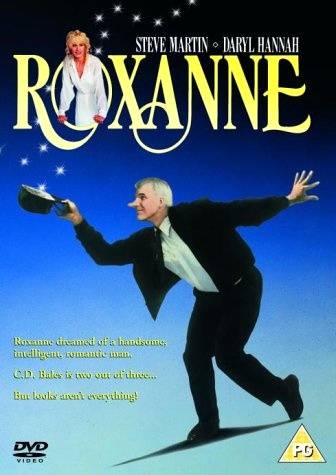The story has been told over and over again throughout the ages. One of the more humorous versions of the story is portrayed by Steve Martin and Darryl Hannah in the movie “Roxanne”. Girl dreams of being swept off her feet. Girl meets boy that is handsome but not exactly able to woo the girl with his words. Boy enlists help of a less attractive friend to speak for him. Girl falls in love with friend’s words thinking they are the words of the boy. Chaos ensues. Girl finds out the words belong to the less attractive friend and is able to look past the exterior to the heart of the matter. Truth wins. Inauthenticity loses.  Different versions of this story play out in movies and reality each day. Somewhere along the line, managers (leaders) were told to keep their private lives separate from their work lives. There is a certain amount of logic to this scenario. Protecting your private life can ultimately prevent your team from possibly using information against you later – not a pleasant thought, but it happens more often than you might think. However, if you are a completely different person at work than you are at home, you might have some explaining to do.
Different versions of this story play out in movies and reality each day. Somewhere along the line, managers (leaders) were told to keep their private lives separate from their work lives. There is a certain amount of logic to this scenario. Protecting your private life can ultimately prevent your team from possibly using information against you later – not a pleasant thought, but it happens more often than you might think. However, if you are a completely different person at work than you are at home, you might have some explaining to do.
According to Merriam-Webster, “authentic” means “real or genuine, not copied or false” (Merriam-Webster, 2015). Subordinates and employees are perceptive and know when someone is not exhibiting their true self. If it is not in a leader’s character to be empathetic or confident, and the leader tries to be empathetic or confident, the employees will be able to tell right away. I once had a manager that read a book about management and then tried to implement each tactic and approach that the book suggested. The problem was, none of those activities or styles fit the woman’s true self. She was much more dynamic and empathetic than the activities she was trying to execute. We could see right through it and as such, we were less-than-enthused to participate. Our manager was much more effective when she was relaxed and in her wheelhouse of a compassionate and intelligent woman. She had great knowledge in our field and she gave wonderful suggestions for how we could best succeed in our jobs. Silly games and communication changes were less effective because they did not come from her.
The theoretical approach to authentic leadership says that an individual needs to develop certain moral reasoning and internal skills to handle situations. Once those skills are developed, the individual will be able to progress to the personal skills needed for authentic leadership: self-awareness, internalized moral perspective, balanced processing, and relational transparency (The Pennsylvania State University, 2015). I think there is a certain validity to that. Sometimes those life events happen later in life so a person isn’t capable of true authentic leadership until they have gained a certain number of years. However, if someone goes through a significant life event at an early age, and is able to process the event in a healthy manner, they would be more likely to learn hope and resilience. Those are essential building blocks to self-awareness and the other traits of authentic leadership. I do think that you have to be open to learning the lessons from life-events in order to grow in authenticity. Many scoff at that openness. I can assure you that openness to new ideas and the subsequent self-awareness that develops is one of the greatest gifts you can give to yourself. Employees will react to that self-awareness often by growing in their own authentic selves. Not to mention the fact that being your true self is much easier than keeping track of the stories you tell when pretending to be someone that you’re not.
Merriam-Webster. (2015). Dictionary. Retrieved from Merriam-Webster Dictionary: http://www.merriam-webster.com/dictionary/authentic
The Pennsylvania State University. (2015). Lesson 12: Authentic Leadership: Authentic Leadership Approaches. Retrieved from PSYCH485: Leadership in Work Settings: https://courses.worldcampus.psu.edu/su15/psych485/001/content/12_lesson/04_page.html


 If you hold it vertically so that one end is at eye-level and the other end is on the floor, you will see the links clearly. Those are much like the “in group” links leaders create with their subordinates. The leaders have a strong connection with each of the subordinates. They trust them more, give the subordinates more duties and rely on them for honesty and direct input to the benefit of the organization. Conversely, the subordinates in the “in group” are more likely to go the extra mile, participate in projects outside of their general job duties and tend to be more personally connected to their leaders (Northouse, 2013).
If you hold it vertically so that one end is at eye-level and the other end is on the floor, you will see the links clearly. Those are much like the “in group” links leaders create with their subordinates. The leaders have a strong connection with each of the subordinates. They trust them more, give the subordinates more duties and rely on them for honesty and direct input to the benefit of the organization. Conversely, the subordinates in the “in group” are more likely to go the extra mile, participate in projects outside of their general job duties and tend to be more personally connected to their leaders (Northouse, 2013).
